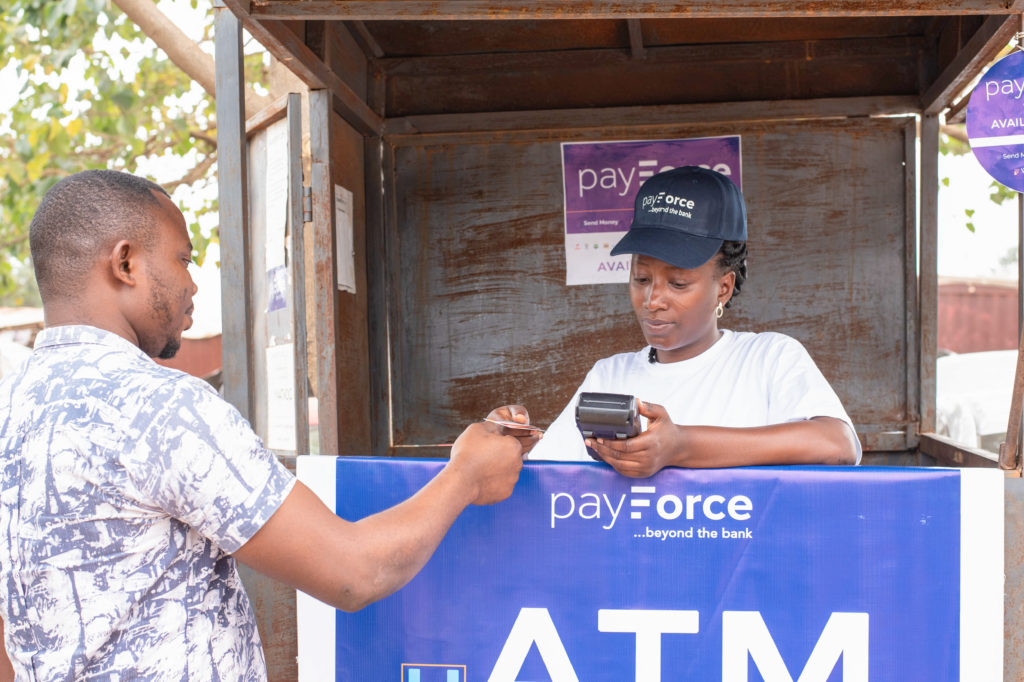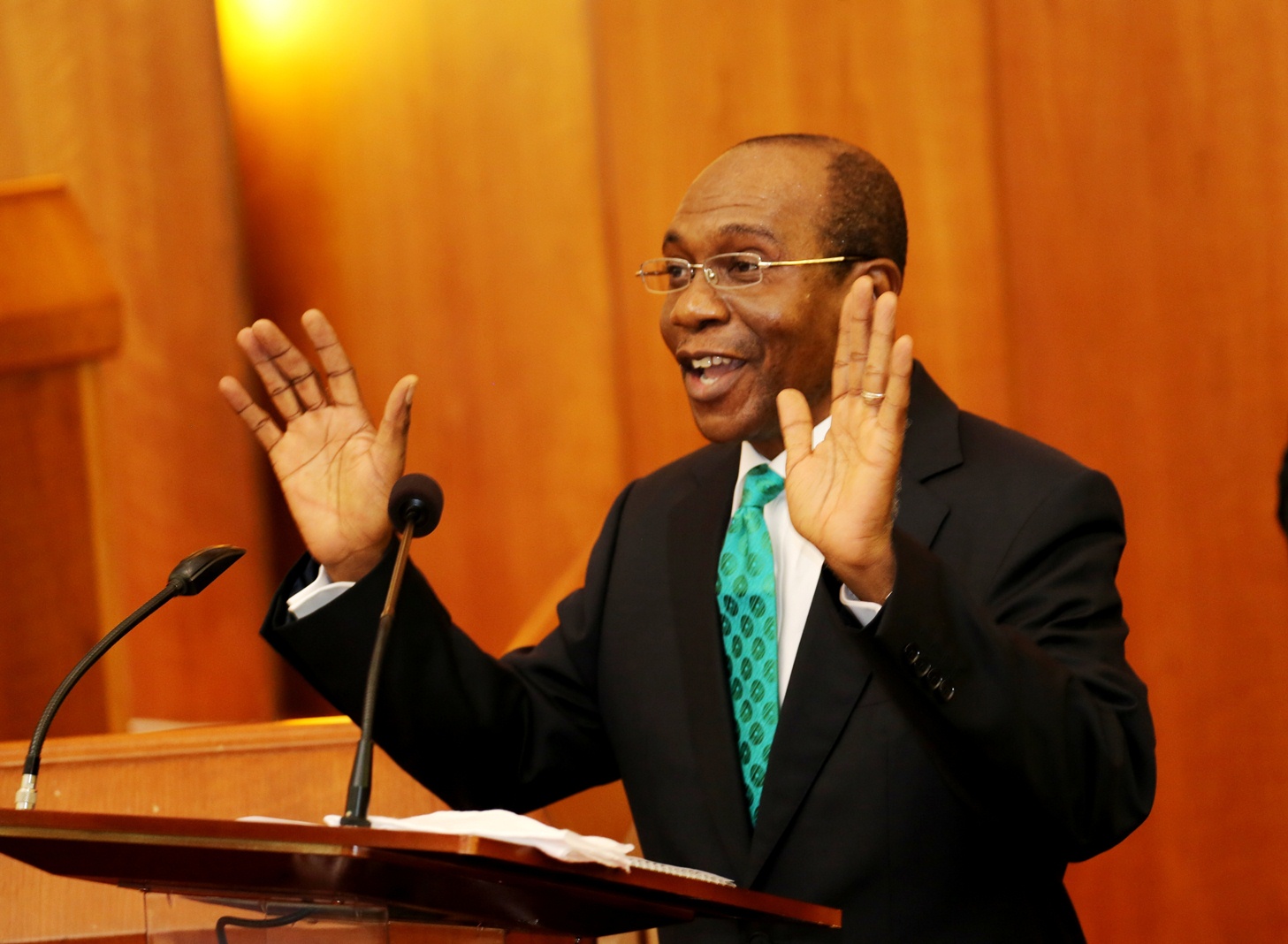The central bank has avoided calling it by the same name as the costly 2016 programme implemented by the Indian government. But as residents of Africa’s most populous country scrambled to comply with a recall and redesign of the country’s currency announced in, the apex bank announced tight limits on cash withdrawals last week.
At $45 per day for individuals and $225 for businesses, the new rules have put millions of Nigerians on the edge.
There is a timer on the homepage of the Central Bank of Nigeria (CBN), counting down to January 31, 2023, when the current series of ₦200, ₦500 and ₦1000 notes will become invalid in Nigeria. Newly designed currency notes will begin to be introduced to replace the existing notes from December 15.
The bank governor had earlier disclosed that it had lost track of ₦2.7 trillion of the ₦3.2 trillion of notes in circulation. At a ceremony held to unveil the new currency notes, the Central Bank governor, Godwin Emefiele, said the “currency redesign will help increase financial inclusion, control inflation and assist in the fight against corruption”. Since recalling the current naira notes, the bank governor said ₦1 trillion has been deposited in the vaults of banks.
On Tuesday, December 6, the central bank delivered another salvo. In a memo to deposit money banks, it directed them to impose weekly cash withdrawal limits at bank branches and ATMs. Under the new rules, individuals can only access ₦20,000 ($45) per day, effectively ₦100,000 ($225) in cash every week. Businesses will have to make do with ₦500,000 ($1125) per week. To withdraw 1 kobo more of your money than the apex bank permits in a week, individuals and corporate organisations will be forced to pay 5% or 10% respectively as “processing fees”.
Once a month, Nigerian residents and businesses may be allowed to withdraw more than the limit without paying the processing fees. But they will need to apply in writing, explaining why they need the cash and will only be allowed to withdraw up to N1 million (for individuals) or N5 million (for businesses) monthly.
Demonetisation 1.0
It is 8 p.m. in the sweltering heat of Delhi on November 8, 2016. Narenda Modi, the India premier is speaking on TV: “Which honest citizen would not be pained by reports of crores worth of currency notes stashed under the beds of government officers? Or by reports of cash found in gunny bags?” he asked.
“Brothers and sisters, To break the grip of corruption and black money, we have decided that the five hundred rupee and thousand rupee currency notes presently in use will no longer be legal tender from midnight tonight 8th November 2016.” Overnight, two denominations of cash were illegal and Indian residents had less than two months (December 31) to exchange their money for the new currency notes.
A few hours before this speech, Pintu, a scrap collector in Delhi had boarded a train for a 24-hour journey to his village near Calcutta, wrote Dana Kornberg, a researcher at the University of Michigan. “With him were 11 1,000 rupee notes that his buyer gave him as an advance just before he left. Just as he got on the train, the notes were declared worthless, and he barely managed to buy a single meal for his family along the way.”
In the immediate aftermath of India’s so-called demonetisation, digital payments briefly surged even as India’s poor weathered the fallout with little help from the government as even social schemes were affected.
Six years later, it is not clear by how much demonetisation has brought India closer to being a cashless economy despite significant growth in digital payments. Within a year, however, the currency in circulation returned to pre-demonetisation levels. Today cash usage in India is at an all-time high.
Like Nigeria, after announcing the withdrawal of 500 and 1000 rupee notes, India imposed daily withdrawal limits, causing long queues around ATMs which soon ran dry. Between November 9 and December 31, 2016, the Reserve Bank of India issued 57 official circulars constantly revising the conditions for deposits and withdrawals as the government struggled to manage the fallout of the cashless policy.
Nigeria’s central bank seems to be following this path. But it is a path that puts it at odds with agency banking, which is a core part of the central bank’s financial inclusion strategy.
In Nigeria, agency banking is operated by agents who facilitate cash withdrawals and deposit with mobile POS devices. Driven by high unemployment and poor ATM service that leads to frequent queues, agent banking and mobile POS devices have become ubiquitous in towns, cities and some rural parts of Nigeria.
Christina operates a mobile POS shop in a small town near Port Harcourt, “Sometimes people withdraw ₦500,000 as they don’t have the patience to wait in banking halls,” she explains to TechCabal, “We are now on our own. Everyone will need to find the cash they need to operate their business.”
By limiting daily cash withdrawals to N100,000 weekly, the CBN’s new rule may affect whether agents will be able to access the daily float they need to run their business.
Wolu Adeyemi, a financial services professional believes that the cashless policy might have the reverse effect of encouraging people to hoard cash. “In one of the most cashless societies in the world, the DAILY withdrawal limit is between $300 and $500 per day. The new CBN limits of N100k per day might encourage more people (especially outside of Lagos, PHC & Abuja) to keep more transactions away from the banking system,” he tweeted.
It’s a view shared by many. As is the opinion that the limitation on cash withdrawals could create a black market for local currency, run by people who have backdoor access to cash given the rampant corruption in Nigeria’s public and private sectors.
If the CBN is unconvinced, Nigerian legislators, fearful of the impact on the communities they represent—and whom they hope to elicit votes from in next year’s general elections—are not taking the recent moves lying down. At a plenary on Thursday 6th December, the House of Representatives asked the CBN to suspend the policy and resolved that CBN governor, Godwin Emefiele should appear before it on Thursday, December 15.
Everyone is not with the programme

Two days after the announcement last week, Nigeria’s House of Representatives, one of the country’s two-tiered legislative arm, invited the CBN governor to explain the restrictions following a motion by Aliyu Magaji, a legislator representing Birnin-Kudu/Buji federal constituency in northwestern Nigeria.
“It is good to have a cashless policy but we seem to be borrowing ideas and policies from other countries that are far ahead of us. We are comparing ourselves with the United States and the United Kingdom. These people are far ahead of us. We will get there one day but this type of policy disturbs the people that voted for us,” the lawmaker argued during a plenary session on December 8. The leader of the main opposition party in the House of Representatives, Ndudi, Elumelu, defended the policy during parliamentary debates last week, but there are still concerns that the policy could disproportionately affect opposition parties ahead of the country’s general elections in early February 2023.
It is not only Nigerian lawmakers and politicians who are concerned about the policy. Ordinary Nigerians are concerned that the cash withdrawal limits (which should come into effect on January 9, 2023, all things being equal) will cause significant distress, especially for low-income earners.
According to the CBN, only ₦3.2 trillion ($7.2 billion) worth of cash is in circulation in Nigeria. It is hardly a significant sum, giving the central bank’s reckless financing of the government. In April 2022, the CBN-to-government overdraft facility reached ₦20 trillion (US$46bn) in August 2022, up from N17.4 trillion at the end of 2021. In the last seven years, government borrowing from the central bank has risen by 7,000%. Nigeria’s CBN also has direct loan schemes that provide up to N3.6 trillion in loans to the agriculture, manufacturing,, and energy sectors.
The Economist Intelligence Unit noted that the CBN’s persistent direct funding of the government undermines its efforts to contain inflation by raising interest rates. One can say that the same goes for the bank’s claim that recalling notes and then limiting cash withdrawals will help to fight inflation and increase the value of the naira.
“There’s a reason why I’m not excited about the CBN policy of withdrawing only [₦100,000] a week. As someone that has witnessed different elections under this democratic dispensation, I can tell you categorically that the policy will only affect the common man. It won’t change anything,” one Twitter user complained.
Since issuing a recall of the current naira notes in November to combat “black money”, i.e illegally obtained money, or money not declared in order to avoid tax, the CBN says ₦1 trillion of the ₦2.7 trillion have been returned to bank vaults. Leaving only ₦1.7 trillion in the informal economy. For some, the CBN policy sounds like a reprimand to the informal workers and traders that make up the bulk of Nigeria’s economic output.
People are also worried that in Nigeria where informal micro and small businesses employ almost 88% of the country’s employed working population and transact mostly in cash, limiting access to cash will affect informal workers and small businesses. By not outrightly banning cash withdrawals that pass the limit, and instead asking for 5% and 10% as processing fees, some believe that the policy has created a workaround for it to be exploited.
In addition, Nigerians on social media have expressed reservations about the capacity of the central bank to impartially implement the policy given the bank’s ties with the ruling All Progressives Congress (APC). Godwin Emefiele, the bank governor, is a party member and contested in the party’s internal selection process to become a presidential candidate.
A boon for the fintech sector?
“Going cashless is good, but only when the digital payment and acceptance services are ubiquitous and reliable. Imagine this: your bank app fails and you can’t withdraw more than ₦20,000 without going to the bank. How does this make sense?” asked Abubukar Idris, a Knight-Bagehot Fellow in Business and Economics Journalism.
As though responding to this, the central bank tweeted on Thursday that it had, “deferred the cashless policy severally to prepare and deepen Nigeria’s payments system infrastructure”.
“All they’re doing now is just using this change of naira to force that cashless policy,” Kalu Aja, an investment professional, told TechCabal. While some people think forcing people to go cashless is too soon, Aja disagrees. “There can never be enough time for this. It’s designed to be uncomfortable. If it was comfortable, no one would do it,” he adds.
While real-time payments is advanced in Nigeria, the overall payments infrastructure is far from perfect. “If this policy is being pushed and some players are not ready the impact is huge. Today one of the biggest complaints is transaction failures,” Omoniyi Kolade, CEO of Seerbit, a digital payments company, told TechCabal. Regardless, he believes the market will adjust itself over time. “There is never a perfect solution. There is never a perfect time for anything. It’s all about being able to align the differences and move on as quickly as possible… When it comes to stability, we are going to grow into it,”
“We are talking about the problems, but who knows whether those problems are being solved while we speak?” he added.
Said Aloy Chife, managing partner at Saana Capital, an early-stage Africa-focused VC firm, “The whole of Kenya, including the bottom of the pyramid—mama mbogas (vegetable stall vendors), the juakali (small-scale traders and artisans), boda boda drivers (okada), everyone—uses MoMo (mPesa, Airtel Money). Your number is your Wallet. Nothing stops Nigeria. It’s 2023.”
In April this year, the bank gave MTN Nigeria and Airtel Nigeria, the largest mobile carriers in Nigeria, permission to operate as payment service banks, clearing the way for mobile money operations. Barely a month after MTN Nigeria rolled out its mobile money service, MoMo, it was hit by a cyberattack and lost $53 million following 700,000 unauthorised transfers to about 8,000 accounts in 18 Nigerian commercial banks.
The attack underscored a trend. Cybercrime is growing in Africa, as criminals turn their attention to the “soft underbelly” of global finance where fraud detection and prevention is often not as robust as in other regions. Beyond direct attacks on payments infrastructure, Nigeria’s real-time payment infrastructure does not handle refunds on failed transactions as smoothly. Per CBN guidelines, refunds for failed ATM transactions, for example, ought to be processed within 24 hours. But complaints over delayed refunds—some dragging on for months—are not uncommon.
Nigeria has struggled to achieve its financial inclusion and cashless economy goals, two policies that are sometimes confused as the same. In the last two years, however, the government has stepped up its game. It launched a mandatory universal biometric ID scheme which it sold as necessary for national security and financial inclusion. At its peak, the program blocked millions of Nigerians from making prepaid voice calls unless their identity numbers were linked to their prepaid SIM cards. The limits on cash withdrawals is the latest in this series of enforced financial inclusion. There are benefits to being cashless and Nigeria is signalling its willingness to reach for those benefits regardless of the cost.
UPDATE – Friday 23, December 2022
The Central Bank of Nigeria has revised its cash withdrawal limits. Individuals can now withdraw up to ₦500,000 per week, five times the earlier limit. While businesses will be allowed to take out up to ₦5 million in cash per week. The defacto fines for going over the limit have also been revised to 3% and 5% for individuals and corporations from the previous 5% and 10%.
A memo from the apex bank announcing the revisions claimed that it was “based on feedback received from stakeholders.” In the days leading up to this revision, the central bank governor had to contend with an invitation to answer questions about the policy from the nation’s lower legislative body and a court filing by Nigeria’s Secret police, seeking to detain central bank governor, Emefiele for two months over allegations of terrorism financing.
The central bank governor did not make it to the scheduled hearing, instead the bank’s deputy governor in charge of financial system stability, Ms Aisha Ahmad took the spot.
The bank still retained the onerous requirements to process cash withdrawals above the limit. To withdraw more their weekly allotment, Nigerian residents will be required to provide a valid means of identification of the payee (National ID, International Passport, or Driver’s License); Bank Verification Number, BVN, of the payee; Tax Identification Number, TIN, of both the payee and the payer. They will also need to sub,it an approval in writing by the MD/CEO of the financial institution authorising the withdrawal.





















